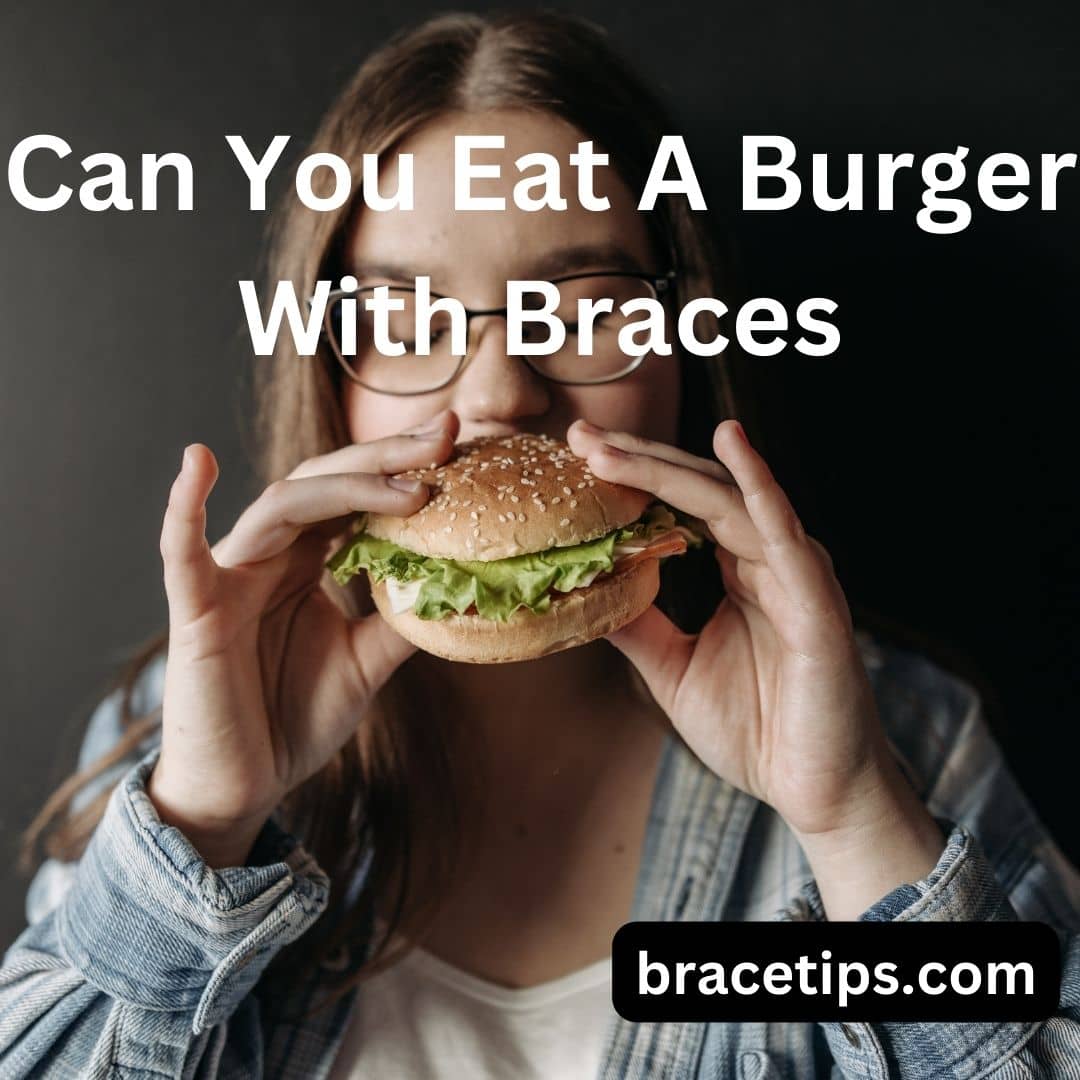Can You Eat A Burger With Braces
Braces are an essential orthodontic tool used to align and straighten teeth. While braces require some extra care and consideration, sinking your teeth into a burger can still be a possibility. Let’s delve into the world of burgers and braces, exploring ways to relish this classic comfort food without compromising orthodontic treatment. They are a common dental treatment. Can you eat a burger with braces it is not effect teeth. However, having braces often leads to concerns about dietary restrictions and what foods are safe to eat. One popular question that frequently arises is whether individuals with braces. Can indulge in a delicious burger without causing damage or discomfort. In this comprehensive guide, we’ll delve into the world of braces and burgers, addressing common queries, providing tips on enjoying burgers while wearing braces, discussing suitable toppings, reasons why caution is advised, and essential tips for navigating the experience seamlessly.
Can Someone with Braces Eat Burgers?
Absolutely! Eating a burger with braces isn’t off-limits, but it does require a bit of finesse. Braces are delicate, and certain precautions can make the experience enjoyable without damaging them. Yes, individuals with braces can indeed eat burgers, but with certain considerations. While the metal brackets and wires of braces pose limitations on certain foods, it is possible to enjoy a burger with some modifications in eating technique and by choosing appropriate ingredients.
Understanding Braces and Dietary Restrictions
Before diving into the specifics of enjoying a burger with braces, it’s essential to grasp the basics of braces and their impact on eating habits. Braces consist of brackets, wires, and bands that apply gentle pressure to shift teeth into proper alignment. While they work their magic, they also introduce certain dietary considerations to ensure they function effectively.
Can You Eat a Burger With Braces?
Analyzing the Components
Meat
Burgers typically contain meat patties, which might pose a challenge for those with braces. Chewing tough or overly dense meats could potentially damage braces or cause discomfort. Opting for softer meat options or finely ground patties might be a safer bet.
Buns
The bun is a crucial element of a burger. While soft, it might still present issues due to its consistency. However, lightly toasting the bun or tearing it into smaller. Manageable pieces can make it easier to consume.
Toppings
Vegetables, cheese, and sauces can vary in texture. Crunchy vegetables or hard cheeses might require cautious chewing. While sticky or hard-to-remove sauces might pose challenges for brace wearers.
Strategies for Enjoying a Burger
Preparation Tips
- Customization: Consider customizing your burger to make it braces-friendly. Ask for smaller pieces of vegetables or opt for softer toppings.
- Cutting Technique: Slicing the burger into manageable portions can help navigate the different textures more easily.
Eating Techniques
- Slow and Gentle: Take your time and chew slowly, avoiding biting directly into hard or large chunks.
- Mindful Chewing: Chew with your back teeth to reduce pressure on the braces and minimize the risk of damaging them.
How Do You Eat Burgers With Braces?
Mindful Bites
Divide and conquer! Instead of trying to take one giant bite, opt for smaller, manageable bites. Cutting the burger into smaller pieces can reduce strain on your braces and make it easier to chew.
Soften the Load
Choose softer burger options to make chewing easier on your braces. Patties that aren’t overly thick or tough can be more braces-friendly. Consider alternatives like chicken or veggie burgers if beef feels too dense.
Toppings Matter
Be mindful of toppings! Skip crunchy options like raw onions or crispy bacon that could potentially get lodged in your braces. Opt for softer toppings like grilled onions, avocado, or sautéed mushrooms for flavor without the risk.
Handle with Care
Use caution when biting and chewing. Be gentle and mindful of your braces. Avoid tugging or pulling at the burger; instead, focus on using your back teeth for chewing.
Avoid Hard Ingredients
Be mindful of ingredients like nuts, seeds, or hard toppings like uncooked onions that might be challenging to chew and can potentially damage the braces. Opt for softer alternatives.
Cutting the Burger
Slicing the burger into smaller, manageable pieces can make it easier to chew and reduce strain on braces. This prevents the risk of biting into a bulky portion that might damage the braces or cause discomfort.
What Toppings Can I Put on My Burger?
Braces-Friendly Toppings
- Cheese: Melted cheese can add creaminess without the crunch.
- Lettuce: Fresh and soft, lettuce can provide a satisfying crunch without posing a threat to your braces.
- Tomatoes: Sliced tomatoes are soft and juicy, perfect for a burger.
- Grilled Vegetables: Soft, grilled veggies like peppers or zucchini can be a flavorful addition.
- Creamy Sauces: Mayonnaise, mustard, or creamy dressings can enhance flavor without adding to the chewing difficulty.
- Tender Meat: Opt for thinly sliced or tenderized meat to make chewing easier and prevent putting too much pressure on the braces.
Why Can You Not Eat a Burger With Braces?
The main concern when eating a burger with braces is avoiding damage or complications. Hard or crunchy elements in the burger can potentially break wires, brackets, or even dislodge bands. Taking precautions and being mindful of what you consume can significantly reduce these risks.
Why Should You Be Cautious Eating Burgers with Braces?
While it’s possible to enjoy a burger with braces, caution is essential due to the following reasons:
- Hard Components: Burgers often contain hard or crunchy elements like raw onions, pickles, or bacon bits, which can potentially break braces or dislodge the wires.
- Chewing Challenges: The act of biting and chewing a burger can exert substantial pressure on braces, leading to discomfort or even damage to the orthodontic appliance.
Tips to Eat a Burger With Braces
- Cut, Don’t Bite: Cut the burger into smaller pieces for easier chewing.
- Choose Wisely: Opt for softer burger options and braces-friendly toppings.
- Chew Mindfully: Be gentle and cautious while chewing to avoid strain on your braces.
- Rinse and Clean: After enjoying your burger, rinse your mouth and floss to ensure no food particles are stuck in your braces.
FAQ Section
Q: Can I eat a burger on the first day of getting braces?
A: It’s advisable to avoid hard or chewy foods, including burgers, on the first day as your teeth and braces may feel sensitive. Stick to softer foods to ease the adjustment period.
Q: Can I eat a burger if I have rubber bands with braces?
A: Eating a burger with rubber bands might be challenging initially. Start with small, manageable bites and avoid excessively hard or crunchy ingredients until you’re comfortable with chewing.
Q: Can eating a burger with braces cause stains on teeth?
A: Ingredients like tomato-based sauces or colored condiments may cause temporary stains, but maintaining proper oral hygiene and regular dental check-ups can prevent staining issues.
Q: How do I eat a burger without damaging my braces?
A: To eat a burger safely with braces, consider cutting it into smaller, manageable pieces, opt for softer ingredients, and avoid hard or crunchy components that could potentially damage the braces.
Q: Should I avoid burgers altogether while wearing braces?
A: You don’t necessarily have to avoid burgers entirely, but it’s essential to be mindful of the ingredients and eat them cautiously, taking necessary precautions to prevent damage to your braces.
Q: Are there specific burger toppings to avoid with braces?
A: Ingredients like hard or uncooked onions, pickles, nuts, and crunchy bacon bits should be avoided or used sparingly to prevent potential damage to braces.
Q: How can I make eating burgers more comfortable with braces?
A: Cutting the burger into smaller pieces, softening ingredients, choosing softer buns, and avoiding hard components can significantly improve the comfort of eating burgers with braces.
Q: Are there any long-term effects of eating burgers with braces?
A: While enjoying a burger occasionally with braces is generally fine, consistent consumption of hard or challenging-to-chew foods might increase the risk of damage to the braces or prolonged treatment time.
Q: How often can I eat burgers with braces?
A: It’s best to enjoy burgers in moderation and be cautious with the ingredients. Regularly eating hard or crunchy foods like burgers can potentially harm braces and prolong orthodontic treatment.
Q: Can I eat a burger immediately after getting braces?
A: It’s advisable to stick to softer foods initially to let your mouth adjust to the braces. Consult your orthodontist for specific dietary guidelines.
Q: Are veggie burgers a safer option for brace wearers?
A: Veggie burgers can be a good alternative as they tend to have softer textures compared to meat patties. However, toppings and bun consistency should still be considered.
Q: Can I have burgers with braces if I cut them into smaller pieces?
A: Yes, cutting the burger into smaller, more manageable bites can help navigate potential challenges in texture and consistency.
Conclusion
While braces might introduce some dietary considerations. They need not rob you of enjoying a burger. With a bit of thoughtfulness and care. Indulging in this classic comfort food can still be on the menu during orthodontic treatment. Remember, it’s about being mindful and making informed choices to savor your burger without compromising your braces’ health. Enjoying a burger while wearing braces is possible with careful consideration of ingredients, preparation, and eating technique. By choosing softer options, cutting the burger into smaller pieces, and avoiding hard or crunchy components, individuals with braces can savor their favorite burger without compromising their orthodontic treatment. Remember, consulting with your orthodontist about dietary restrictions and following. Their recommendations is crucial for maintaining the health of your braces and achieving a beautiful smile. It’s essential to approach it with caution, customize where possible, and always prioritize the health and functionality of your braces.

